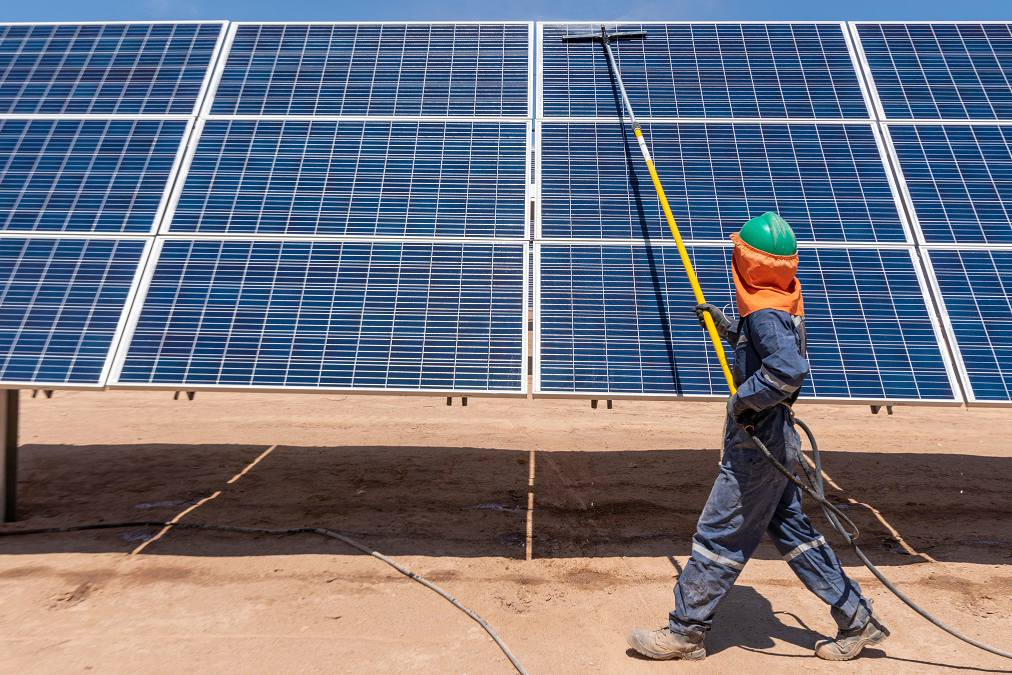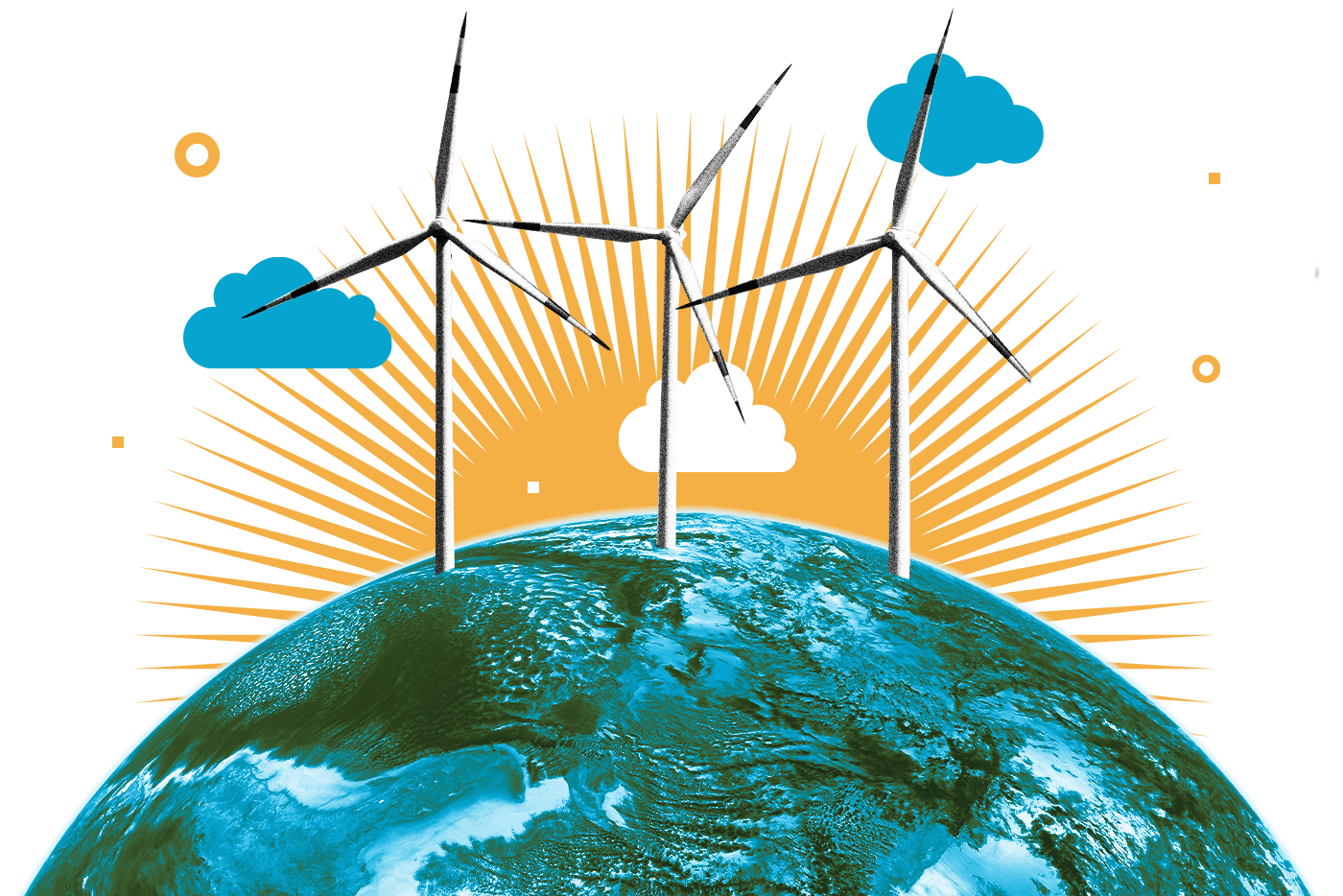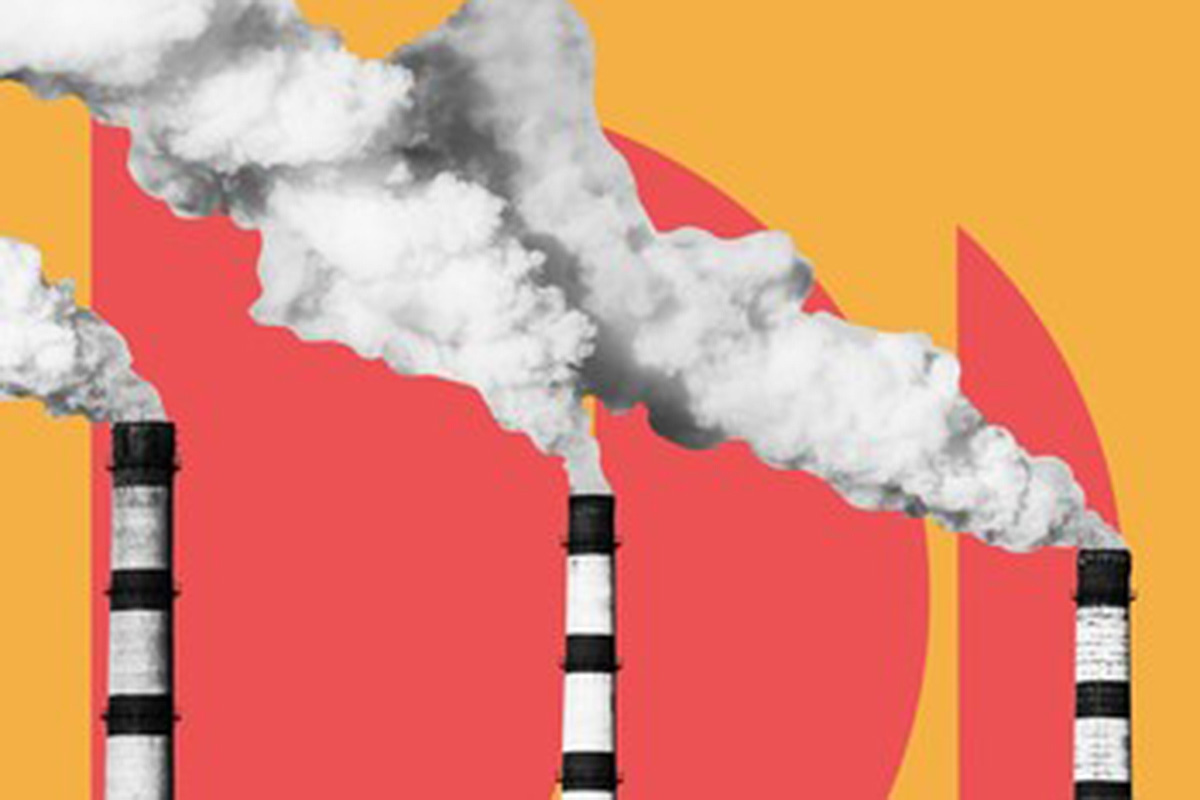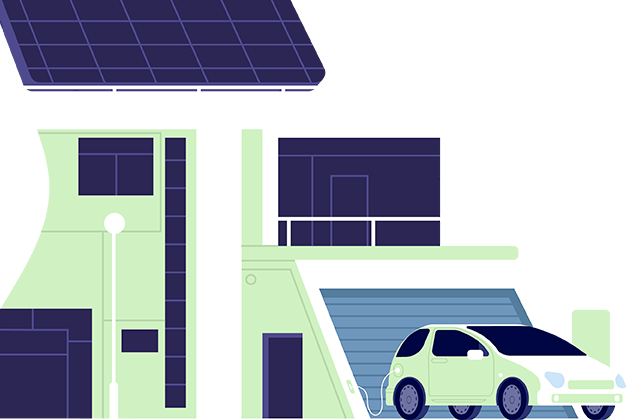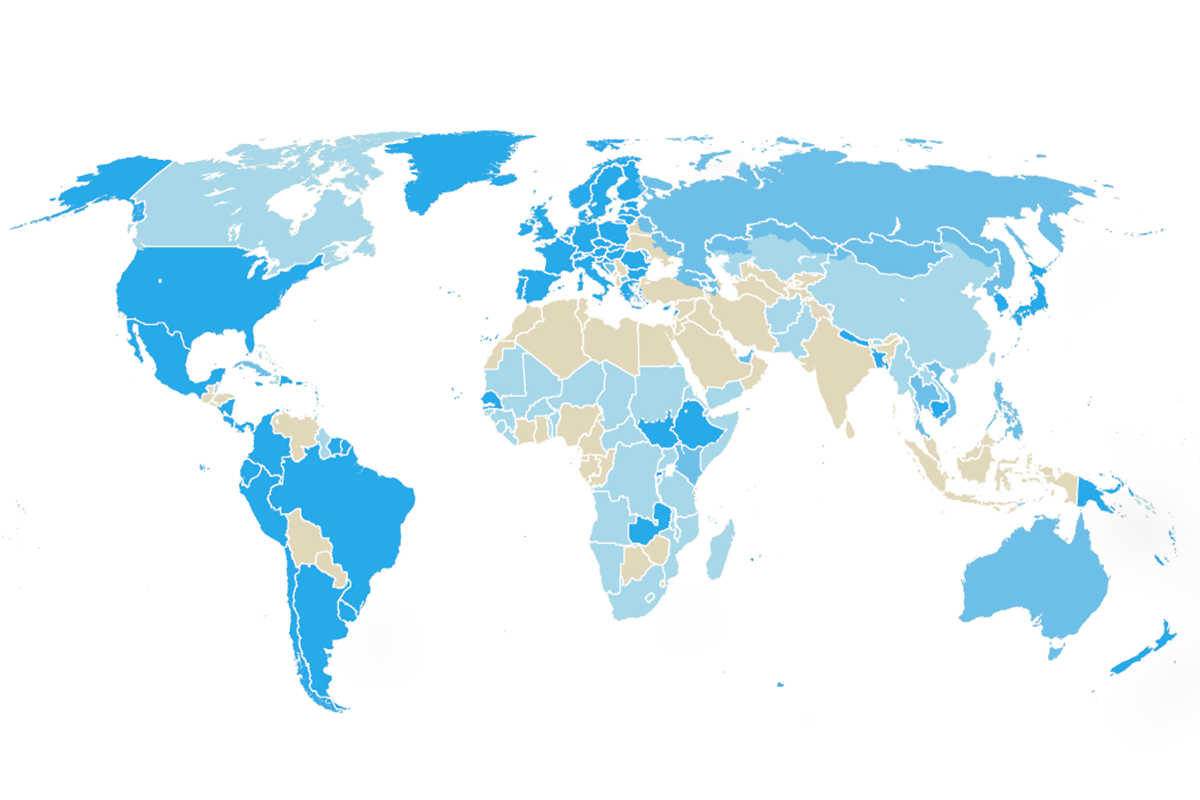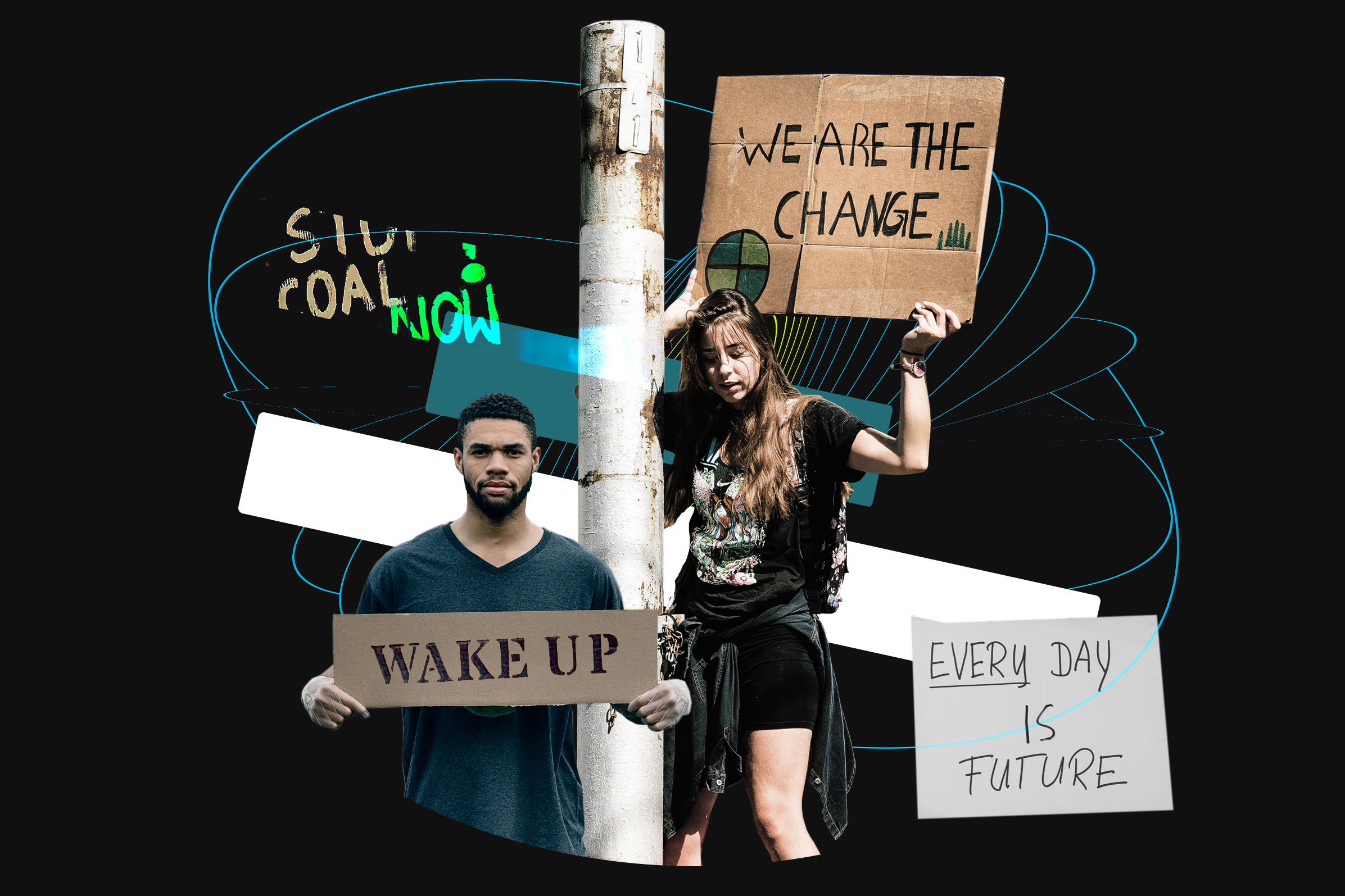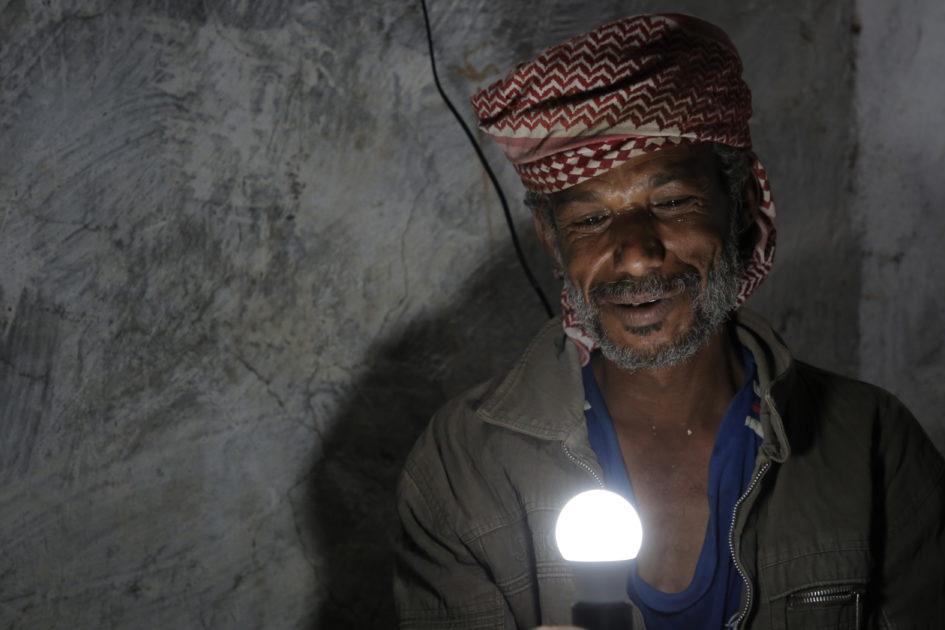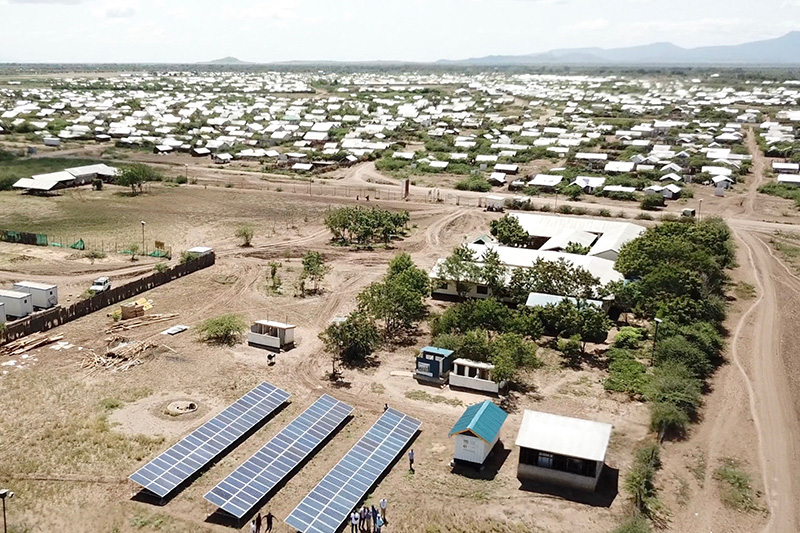The surge in demand for critical energy transition minerals amid the climate emergency underscores the urgent need for sustainable practices and global collaboration to address commodity dependence and achieve net-zero emission targets by 2030.
Energy
Clean energy is crucial for the dual challenge of inclusivity and environmental protection. With 675 million people lacking electricity, mainly in Sub-Saharan Africa, access to clean energy is vital for socio-economic development and environmental sustainability. It is also essential for combating climate change, by shifting away from fossil fuels. Renewable sources like sun, wind, water, waste, and heat from the Earth – are replenished by nature and emit little to no pollutants into the air. Also, improving energy efficiency ensures cost savings and universal access to sustainable energy.
FAO through funding from the Africa Development Bank, have excavated a pond to store water, provided a solar-powered water pump for irrigation and seeds, empowering female farmers like Lilly in South Sudan, to be able to plant and sell their vegetables.
In the face of climate change, pastrolists in South Sudan are losing their livestock and in turn, their livelihoods. With support of FAO through funding from the Africa Development Bank, pastoralists like Lokuru, now have enough water for the animals.
The war in Ukraine is now in its seventh month. The fallout - humanitarian, economic and environmental - continues to grow. Its costs are being felt not only within Ukraine but around the world, where they are in turn compounding other conflicts and emergencies. In a new policy paper, UN Women explores the interrelated crises being driven and exacerbated by the war in Ukraine. Here are 4 key things to know: 1. The war in Ukraine is driving food and energy crises globally; 2. Women and girls are being impacted more—and differently; 3. It’s (past) time to rethink our global food and energy systems; 4. We need sustainable, gender-responsive solutions. More available in this feature.
Ever since nuclear fusion was understood in the 1930s, scientists have been on a quest to recreate and harness it. The IAEA has been at the core of international fusion research.
In this episode of No Denying It, the UN climate action podcast, UN News talked to Mr. Ezekiel about why we should be treating climate change with the same urgency we have treated COVID-19, how he works with local leaders and youth to protect Ghana’s environment, and why he faced arrest for simply speaking out against coal.
Meet Faryal - one of 135,000 children who now have a better learning environment thanks to solar-powered fans and lights in classrooms. In Pakistan, a lack of basic facilities in government schools contributes to low enrolment and high dropout rates – a problem that is especially severe in remote areas. To help improve school conditions and address low enrolment and high dropout rates, UNOPS and partners installed solar energy systems at more than 1,200 schools across Pakistan's Khyber Pakhtunkhwa Province.
The evidence is irrefutable. We cannot address the climate crisis without looking at the true cost of our addiction to oil, coal and gas. Fossil fuel subsidies are a major obstacle to our climate and sustainable development goals because they encourage investment in pollution and discourage renewable energy. Phasing out fossil fuels and taxing carbon will spur growth and innovation. The world will spend trillions of dollars to recover from COVID-19. This investment can build the green economies of tomorrow.
The IMF brings us the daunting picture, which emerges from International Energy Agency “Net Zero by 2050” report: the energy sector needs a complete overhaul. To succeed, governments must act immediately and decisively to end fossil fuel consumption and craft a resilient energy economy dominated by renewables such as solar and wind power. The pathway to success is narrow, but the IEA report makes it clear that it is achievable. Decisive climate action now will put the global economy on a stronger and more sustainable footing over the long run.
The clean energy revolution has begun. How quickly and fairly it happens, and who will benefit from it, is the greatest challenge of our time. What we do next will shape the destinies of generations to come.
Transforming the way our world produces energy will be critical to tackling both the climate crisis and the energy access crisis. Now, 80 per cent of all greenhouse gas emissions stems from our energy production, making it one of the main drivers of climate change. And 760 million people live without electricity, while 2.6 billion cook with dirty, unhealthy fuels. A global roadmap to 2030 has been proposed.
Well into its fifth year of conflict, the humanitarian situation in Yemen continues to worsen. Throughout the country, the provision of public services, such as electricity, has come to a virtual standstill, wreaking havoc on other critical services such as education, water and sanitation, and healthcare. In an effort to relieve the ongoing crisis, UNOPS partnered with the World Bank to restore access to critical urban services in selected cities across Yemen. Restoring key services – including energy, water and sanitation, transportation and waste management – is critical to improving health, basic living conditions and local economic activity.
Humanitarian agencies need to transition to sustainable energy to power their operations and lower their dependence on fossil fuels. UNITAR has been working to tackle this crucial challenge.

